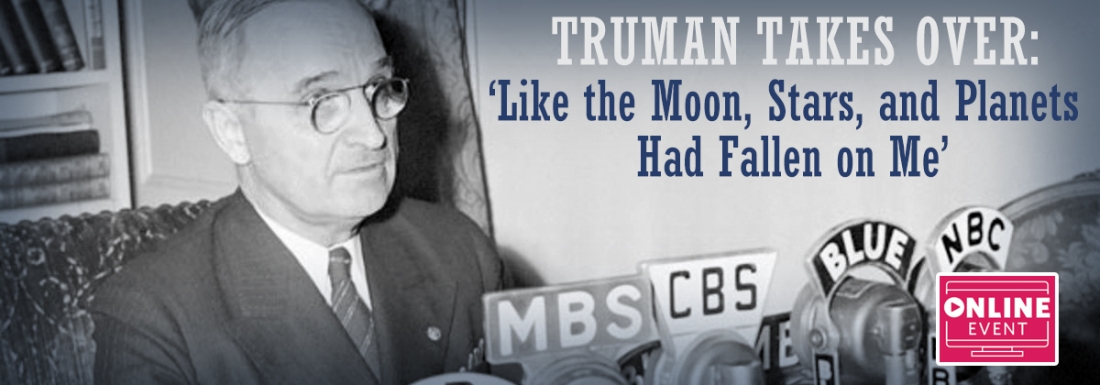
All Library locations will be closed Monday, January 20, for Martin Luther King, Jr. Birthday.

All Library locations will be closed Monday, January 20, for Martin Luther King, Jr. Birthday.

Harry S. Truman was scarcely prepared to assume the presidency upon the death of Franklin D. Roosevelt in April 1945. He’d been vice president for all of 82 days. Seldom in that time had he made contact with FDR. The onetime Missouri haberdasher now would have to help form the post-World War II environment in Europe, where victory was weeks away. And an end to fighting in the Pacific would rest months later on a difficult decision to employ the newly, and secretly, developed atomic bomb.
Military historian Gates Brown of the U.S. Army Command and General Staff College examines this critical time of transition, in which Truman acknowledged feeling “like the moon, the stars, and all the planets had fallen on me.” His unflinching responses fundamentally shaped the postwar world and the Cold War that was soon to come.
